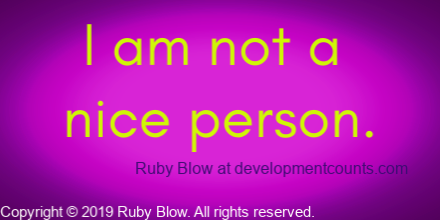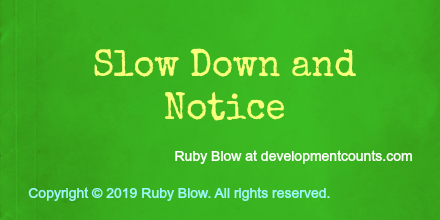Comfort is not a Prerequisite
Is anyone comfortable with confrontation? I don’t know.
There are certainly people skilled at confronting others. But that doesn’t mean that they enjoy it or that they are comfortable. The truth is, if you are waiting to feel comfortable, then you are delaying and/or stunting the growth of important aspects of yourself, your career, your relationships and so on.
So many people wonder why they are being mistreated. Whether it is being passed over for opportunities, or having their input disregarded, or their needs in their close relationships unmet. In other cases people feel generally misunderstood, lied too or even actively discriminated against.
Whatever it is that needs to be confronted in your life – whether it be external or internal – don’t wait until you are comfortable. Comfort is not a prerequisite. Some things must be done because they are right and true. When you don’t align yourself with what is real, with what you know from the center of your core…you will remain stuck. Even if you move forward…one step in front of the other, you will find yourself either regressing or staying still. You could be stagnated…never really moving beyond your current level of functioning or fulfillment.
So instead of writing about how to get comfortable with confrontation, I want to focus on how to confront. Because you have to confront people and situations regardless of how you feel.
Assertiveness – “I’m Okay and You’re Okay”
Let’s be clear. I am referencing healthy confrontation. The type of confrontation where you communicate your concerns without tearing the other person down and without devaluing yourself. Many people mistake asserting oneself with being aggressive. But they are vastly different.
When you are being assertive, you are not focusing on cultivating anger or rage. You don’t poison yourself with obsessing about the wrong or harm that was done. Instead you gather your thoughts, reflect on your emotions and your actions. You check in with yourself to make sure that you are reacting and responding in ways that demonstrate respect for yourself.
You remind yourself of what is redeeming in others. Most people have aspects of self that you can relate to and other aspects that you don’t relate with at all. It’s okay for someone to be different from you. It is okay for you to be different from others. It doesn’t make you or them worthless. We are all worthy of respect. You cannot effect healthy confrontation if you want to tear the other person down or make them pay.
Consider – Time and Place
Regarding the timing of a confrontation, I think the most important thing is immediacy. Discuss the concerns as close to the event as possible. When you wait too long to address an issue more slights can occur. As the problems build, you run a higher risk of aggressive confrontation.
“There is a time for everything and a season for every activity under the sun.” It is important to consider the timing when you decide to confront a person or situation. Consider whether or not the discussion should be private. Consider if it should be in person, via phone or via e-mail or even via text. I know many people discount digital communication. But I firmly believe that how you communicate something important to someone should be informed by all of your communication with them.
If I am confronting a business acquaintance who I generally never see in person or even speak with on the phone, an e-mail seems most appropriate. Some people ignore phone calls or avoid meeting others in person when they know there is a rift in the relationship. In which case, a text may be appropriate or even a voicemail message.
If you need to confront someone that you see in person regularly, then the dialogue should absolutely occur in person. Don’t delay what is vital to your well-being. At the same time, don’t be hasty. You must first be in proper alignment or next you will be apologizing to them for your reaction.
Authenticity
It is vital that your intent and thus your language is clear. If you confront someone but are not authentic with your ability to experience that person as being as valuable as you are (and thus “okay”), then you should wait until you can bring yourself into alignment.
Alignment is when your thoughts, feelings, words and actions line up. When you are not aligned you are not operating from an authentic place. When you are inauthentic (also known as fake), you are communicating from a place of dis-empowerment.
You can never have real relationships if you are not being real. Your work and personal relationships will be based on a persona you project and not who you really are. You will grow to resent others and feel alone wherever you go.
Remember the Point
When you confront someone it is not to change them. It is to change you. It is vital that you speak up for yourself. It is also important that you don’t try to control the outcome.
If you confront someone about how they have treated you, you are placing your self at the center of your life and its outcomes. You are not letting your imagination run wild with what things meant or why you did or didn’t deserve the mistreatment.
When you confront people and situations, you are clearing the deficit in your moral register. You have a right to do more than just exist. You have a right to be here. You have a right to be heard. You have a mandate to treat others with the same respect that you expect in return, whether they grant you that respect or not.
You can quickly lose respect for yourself when you don’t stand up for you. You can’t control others. You can possibly influence them. But remember the main point is to speak up for you and assert your rightful place on this plane of existence.
Copyright © 2017 Ruby Blow. All rights reserved.
Share your thoughts on Linkedin, Facebook, Twitter or log in to one of your accounts below to comment. Subscribe to my YouTube channel.





